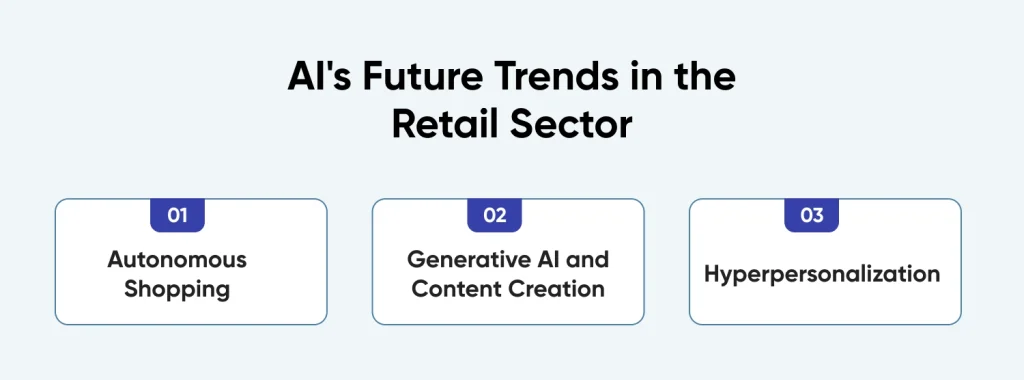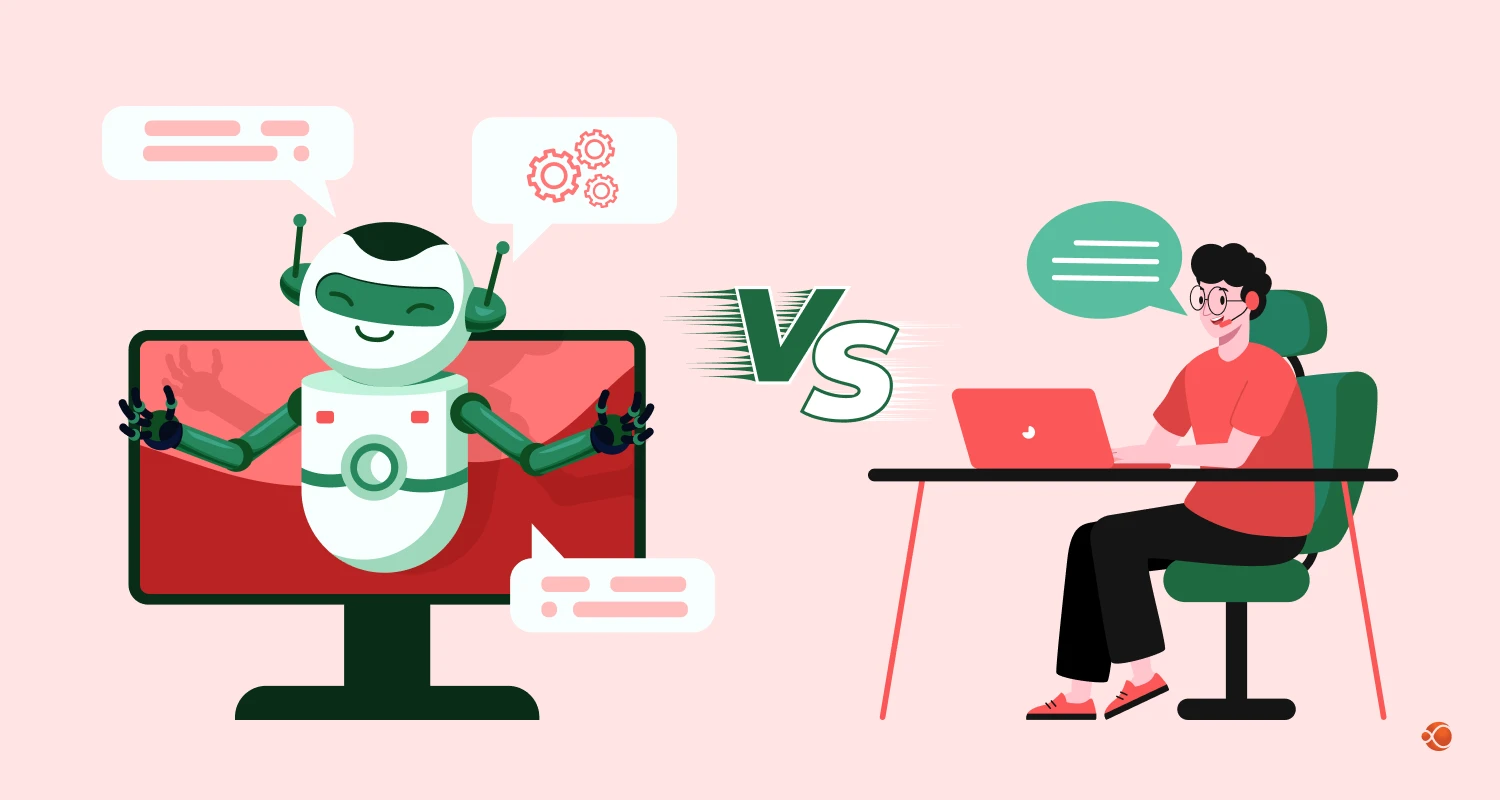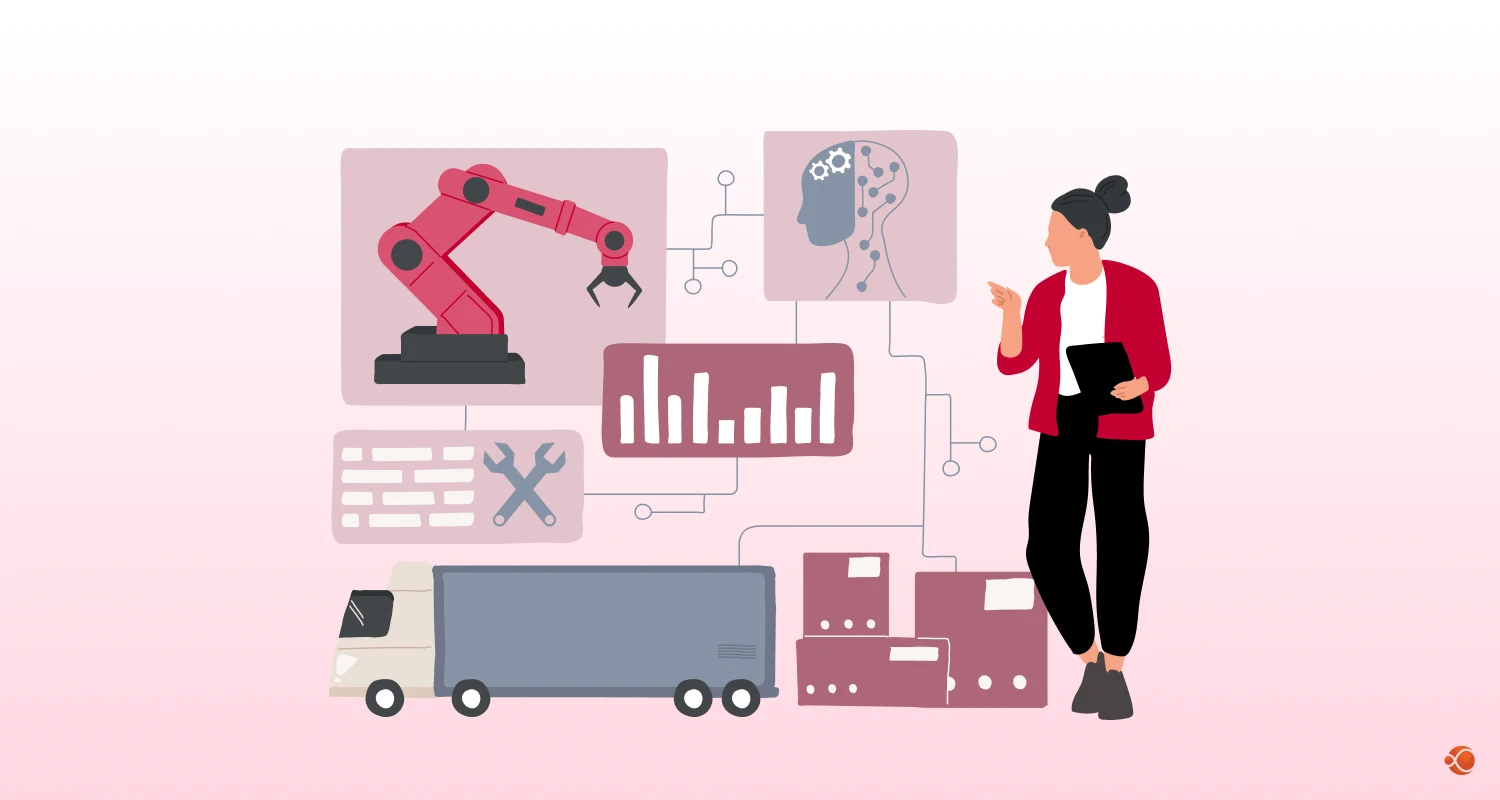These days, businesses anticipate needs long before clients ever mention them. Each and every consumer has a customized purchasing experience. AI’s growing influence is causing industries to change. AI offers original solutions for a variety of issues. The retail industry is also set to undergo a tremendous shift with the advent of AI technology. This helps it make smart decisions that change the retail shopping experience. There are several new stats and reports to prove the expansion of the AI market globally. By 2025, experts believe the AI in retail market will grow up to $15.3 billion.
By reading this post, the blog hopes to inform you on the current status of AI in retail. To emphasize its significance, we will also examine important data, use cases, and practical implementations. Let’s start learning about AI for shopping!
Examining AI’s Advantages in Retail
AI is indeed replacing old operations with customer-focused, efficient models. Retailers can now offer more personalized experiences. AI helps reduce costs and improve efficiency. Retail operations are becoming more intelligent and efficient thanks to artificial intelligence in retail. AI can improve consumer satisfaction and assist retailers in making better decisions.
Enhanced Customer Personalization
AI has changed retail personalization by analyzing consumer preferences and behavior. It aids merchants in making the purchasing experience better. This is furthered by generative AI solutions in eCommerce. These solutions offer dynamic, context-aware product recommendations. Customers benefit from a more seamless and customized purchasing experience as a result. By predicting consumer needs, AI also assists businesses in developing offers that boost engagement and retention rates, hence optimizing loyalty programs.
Optimized Inventory Management
AI is essential to efficient inventory control. Accurate demand forecasting is made easier for merchants by predictive analytics. This reduces issues like stockouts and overstocking. Real-time tracking driven by AI makes sure that inventory levels are always just correct. It also reduces operational waste and inefficiencies. Furthermore, AI in retail stores analyzes market demands and seasonal trends.
Better Efficiency and Productivity
Automation driven by AI increases the productivity of retail businesses. It reduces the need for manual labor in cashier services, stock replenishment, and data analysis. As a result, workers can focus on more strategic and value-driven duties. AI-enabled chatbots can quickly answer customer inquiries. Response times are shortened, and customer satisfaction rises as a result. Additionally, analytics powered by AI offer insightful information. These data-supported insights assist merchants in making more informed decisions.
Top Use Cases of AI in Retail Industry
AI is used by retailers to evaluate customer data. This makes shopping experiences more personalized. AI in retail industry also personalized shopping experiences, helping brands understand customer preferences. A thorough examination of the use of AI in Retail industry is provided below:
Personalized Shopping Experiences
AI analyzes customer preferences and behavior to assist businesses in providing individualized shopping experiences. This allows companies to recommend products that match customer preferences. Virtual assistants are a key feature of AI-powered retail solutions. Additionally, algorithms and AI in retail examples power dynamic pricing systems. Based on variables like market trends, rival tactics, and customer demand, these algorithms swiftly modify prices.
Visual Search and Augmented Reality (AR)
Visual search and AR or augmented reality are emerging technologies that make it possible to revolutionize the shopping style of people. Now, we get to see the innovations with AI. This makes shopping easier and faster. By enabling consumers to view products in authentic environments, augmented reality (AR) goes beyond this. By enabling customers to interact with things before purchasing them, augmented reality (AR) increases engagement. For instance, AR eCommerce platforms let customers virtually test clothes or digitally arrange furniture in their houses.
Optimization of the Supply Chain and Logistics
AI leads to smoother operations. With AI, processes become more efficient. Real-time tracking systems driven by AI guarantee transparency and customer happiness by giving accurate delivery updates. By analyzing equipment performance and anticipating possible problems, predictive maintenance technologies save downtime and guarantee efficient logistics operations. These applications lower expenses related to delays and disruptions while also increasing efficiency.

What are the Implementation of AI in Retail
Retail must implement a carefully considered plan in order to effectively utilize artificial intelligence’s (AI) potential. To guarantee effective adoption, retailers must match AI solutions with their unique business objectives and foster an innovative culture. Finding the areas where AI may provide observable advantages, such as improving customer satisfaction, optimizing processes, or cutting expenses, is the first step in a systematic strategy. Retailers can concentrate on choosing the best AI tools and technologies to achieve these aims once these objectives are well-defined.
Define Clear Objectives
Prior to implementing AI software development services, it is essential to set specific goals. Retailers should identify certain issues, such as better inventory control, supply chain optimization, or customer experience personalization, that AI can help with. Businesses can set the stage for a focused and successful AI implementation plan by establishing quantifiable goals.
Choose the Right Technology Stack
Leveraging AI in retail requires choosing the appropriate technological stack. Access to cutting-edge tools and frameworks is ensured by working with seasoned tech partners who provide specialized AI software development services. By hiring specialized developers, businesses can speed up the integration process and minimize operational disruptions while integrating AI capabilities into their current systems.
Data Integration and Management
The quantity and caliber of data that AI processes determines how effective it is. To create powerful AI models, retailers need to integrate a range of data sources, including market insights, sales records, and consumer data. By using advanced analytics approaches, businesses may predict market trends and customer behavior with accuracy. Secure data storage technologies are also essential for upholding client confidence and adhering to data protection laws to build smarter enterprises with AI.
Employee Training and Adaptation
Training staff to use AI-powered tools efficiently is another essential component of a successful AI implementation in retail. Enhancing employees’ comprehension of AI applications and promoting teamwork should be the main goals of training initiatives. Businesses may enable employees to optimize productivity and leverage AI’s potential to stimulate creativity by cultivating an AI-friendly workplace culture.
AI’s Future Trends in the Retail Sector
It’s true that the retail industry is set to get some significant changes with the help of AI. Every retailer who is set to welcome AI will enhance the competition as it grows. AI allows them to provide better customer service and improve their processes.

Autonomous Shopping
AI is changing how people shop by creating cashier-less stores. Customers can select what they want and simply leave. At the register, they are no longer required to wait in line. This makes shopping faster and more convenient. These stores automatically track transactions and handle payments using sophisticated AI algorithms in conjunction with computer vision and sensor technology. In addition to being easy, this smooth shopping experience lowers operating expenses for merchants and raises consumer satisfaction by doing away with lengthy wait times.
Generative AI and Content Creation
Generative AI in eCommerce is becoming an important participant in eCommerce, reducing content generation chores that traditionally needed substantial time and effort. It makes it possible to create excellent product descriptions, individualized advertising campaigns, and captivating images that are catered to the tastes of certain clients. This technology helps businesses engage their audience more effectively. It also improves interaction and saves money. Other significant projects can be funded with the money saved. By streamlining processes, businesses can focus on what matters most like the AI Business Ideas. Better resource allocation and increased efficiency result from this.
Hyper-Personalization
Making informed judgments today requires sorting through the vast amount of data available. Retailers can use AI to examine past purchases, demographic information, and browsing history. They can obtain important insights by using machine learning techniques. The products that are most relevant to each consumer can then be suggested using this information. Additionally, Generative AI in eCommerce can be used to produce assets that allow for customization of each and every customer communication. Agents using AI may also provide information about new items and trends that they believe suit the preferences of the customer.
Conclusion
The retail industry is evolving as a result of AI’s revolutionary implications. AI provides technologies that revolutionize the way retailers interact with consumers and allocate resources. For instance, it makes tailored purchasing experiences and real-time inventory management possible.
Adopting AI solutions and collaborating to hire dedicated developers will be essential for maintaining competitiveness as the retail sector changes. Businesses may create more intelligent and flexible processes by investing in eCommerce software development and putting AI-driven solutions into practice. Profit from these advancements right away to fuel growth and success in the fast-paced retail sector.
Frequently Asked Questions
How can AI be used in Retail?
AI provides predictive analytics to identify trends, which benefits retail. It automates customer support using chatbots. AI also manages inventories, helping retailers track stock levels and sales. It can identify fraud, making shopping more secure. AI personalized shopping experiences, tailoring suggestions to each customer. This leads to higher customer satisfaction.
What is the future of Retail with AI?
Future developments in the retail sector include a number of new technologies. Every business is driving towards better decision power for the AI insights. These developments are improving eCommerce client experiences. Businesses can better grasp client wants as AI develops. Retailers’ use of AI will change the industry. It will increase productivity and improve customer-focused strategies. AI can help streamline operations.
Which types of AI technologies are transforming the Retail sector?
AI-driven solutions include personalized marketing campaigns, automated checkouts, and smart shelves. AI’s influence on retail is further demonstrated via virtual try-ons and sophisticated supply chain optimization. Predictive analytics and fraud detection further enhance the retail experience. These AI retail solutions increase productivity. Additionally, AI software development services help retailers stay ahead of the curve.







